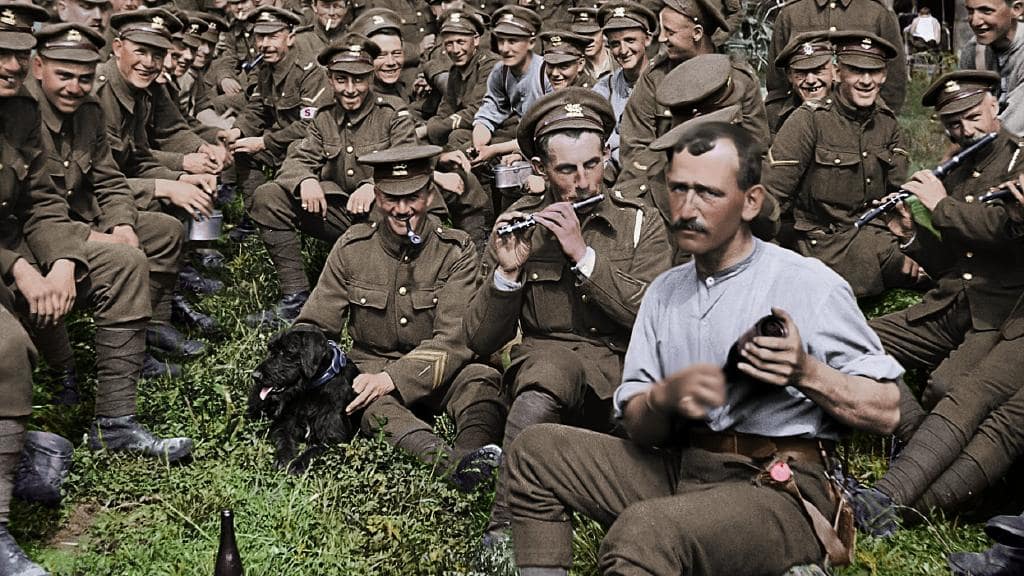|
They Shall Not Grow Old, the new First World War film from Peter Jackson is gaining, quite rightly, a lot of plaudits for how it has colourised original WWI video footage in a much more successful way than anyone has before. It may be a gimmick, but it is successful at breathing fresh life into another documentary about the Great War, now 100 years removed. There’s an argument it’s in danger of being forgotten and as much as purists dislike it, this will engage a younger audience in a way grainy, jarring black and white video never will. However as impressive as the colourisation is, what stood out most for me was how it sounds. Sound is an often overlooked part of film, but it is every bit as important as how it looks, and in some cases arguably more important - a good film can look bad, but a good film can’t sound bad. There is no narrator as what Jackson has done is string audio recordings from dozens of different Tommies into one coherent ninety minute monologue. It flows so well it’s astonishing they managed to find such a dearth of soundbites. Some of the things they say are shocking and surprising, from one man at the start saying the war was the best time of his life, to another describing euthanizing a mortally injured comrade during a charge. The majority of the interviews were recorded in the sixties, so they are not old, frail men recounting these events, but those you meet every day, like your dad or work colleagues. Just ordinary men talking about the most extraordinary of events. Another element they added which was not much promoted is the use of foley and ADR. Using the now restored footage they synced sound such as horses and rain to more immerse you in the experience. They even hired lip readers so that when someone on screen says something, issuing orders, a prayer or even throwaway banter you hear what those words are. They even went to the effort of finding out what regiment was in the footage and then casting an actor with that accent to make it as authentic as possible. It doesn’t work every time, obviously changing from the source frame rate of the old hand cranked cameras - anywhere between 10 to 18 fps - to 24 fps is going to create some ghosting, but it’s that care and attention to every little detail that helps bring the film to life.
Other little details you pick up on about the wartime experience and the period are those that would rarely be important enough to include in a history book, such as how soldiers went to the bathroom, that Fray Bentos was still around even back then and yes pretty much all of their teeth were awful. It comes as close as a film probably can to giving you an idea of what day to day life was like in the trenches, mostly characterised as a group of blokes finding ways to entertain themselves through the tedium. And you do see they are guys just like us, when they see the camera most of them shout “Hi mum!” and there’s a great shot of one soldier bumping another on the head with a stick in that annoying way we all have one friend who does so (I am that friend). As Jackson himself has said one of the main learnings you take away from They Shall Not Grow Old is a different way of looking at the men and boys who fought in the First World War. They didn’t see themselves as victims as they are often romanticised to be, but as soldiers going off to do a job that had to be done. Of course these are only the recollections of the ones who came back, but through their testimony and the remarkable upgrading and colourising of footage and images that once appeared ancient and foreign, a curiosity in a museum or textbook, you see them in a way you never have before.
0 Comments
|
Archives
June 2020
Categories |

 RSS Feed
RSS Feed
